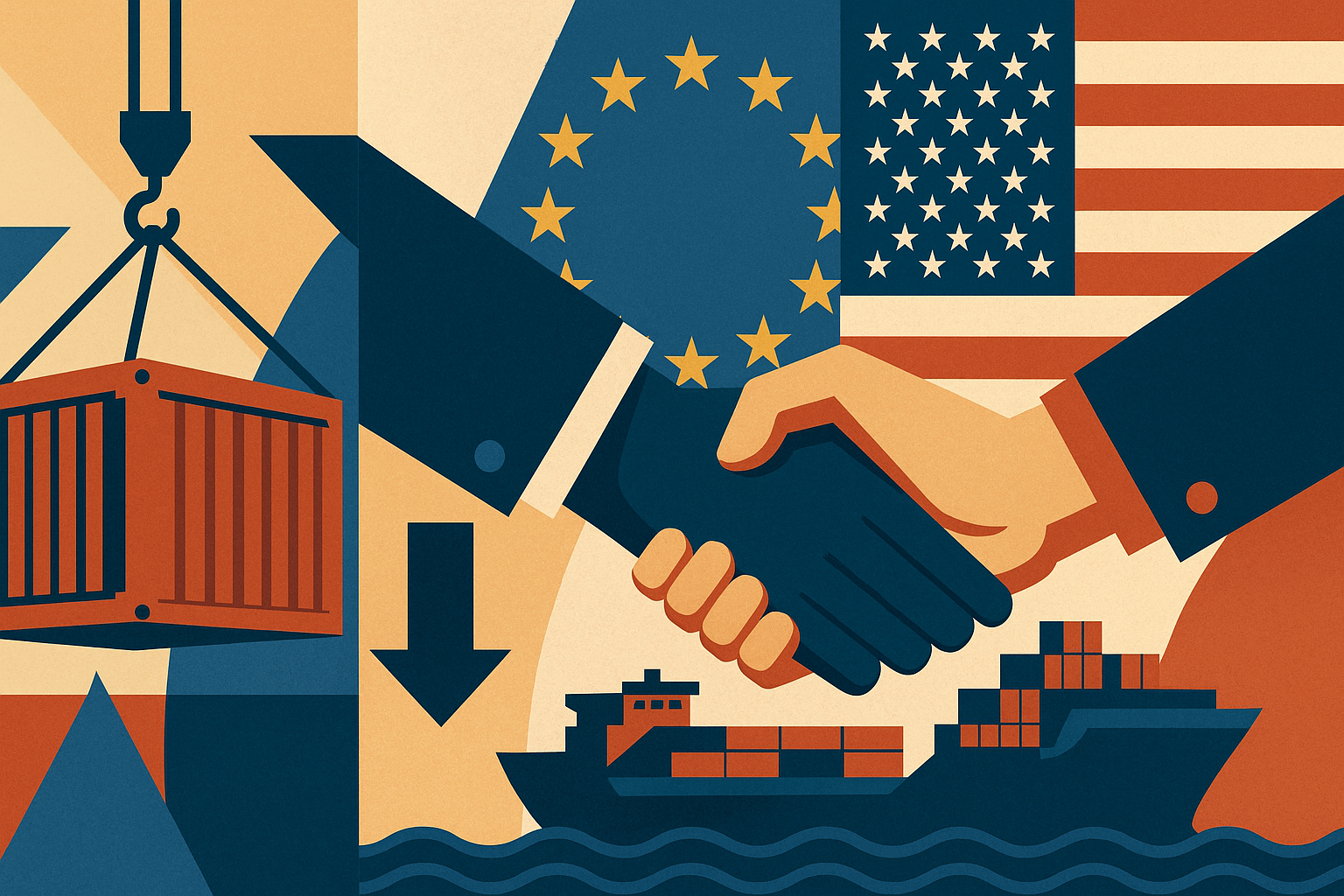The European Parliament has raised significant objections to the EU’s recent trade agreement with the United States, with lawmakers from across the political spectrum calling for amendments before ratification.
Criticism of a “One-Sided” Agreement
Members of the European Parliament (MEPs) from five major groups — Socialists, the Left, Greens, Renew, and the far right — criticised the deal during a debate with the EU’s chief trade official, Sabine Weyand, on Wednesday.
The agreement, struck in July, reduces tariffs on some US industrial and food exports while leaving most EU exports to the US facing levies of around 15%. Several MEPs argued the terms were unbalanced and favoured Washington.
Kathleen van Brempt of the Socialist and Democrats Group said the concessions violated World Trade Organization rules by offering tariff reductions to the US that were not extended to other trading partners. “We will not rubber stamp this deal,” she declared.
Martin Schirdewan, co-leader of the Left Group, accused Brussels of capitulation: “Consumers will pay higher prices, industry will suffer and jobs will be lost.” From the far right, France’s Thierry Mariani called the EU “weak” and claimed “President Trump dictated conditions.”
Concerns Over Stability and Scope
Green MEP Anna Cavazzini questioned the deal’s durability, noting that former US President Donald Trump threatened new tariffs even after signing the nonbinding agreement. Members of the liberal Renew Group also voiced opposition, highlighting uncertainty over Washington’s reliability.
Bernd Lange, chair of the Parliament’s trade committee, predicted changes during the legislative process. He called for faster tariff reductions on EU steel and aluminium exports, which remain subject to 50% levies. He also suggested inserting a “sunset clause” so EU concessions would expire unless renewed.
Risks of Rejection
The five groups opposing the deal together hold 396 of the Parliament’s 725 seats, raising the possibility of rejection. However, national leaders, concerned about the risk of a transatlantic trade war, may pressure MEPs from their parties to support ratification.
Weyand defended the agreement, stressing that the EU secured better terms than any other US trading partner. Car tariffs, for example, will drop from 27.5% to 15%, while Trump’s earlier threats of 30% across-the-board tariffs were avoided.
She warned that failing to approve the deal could reignite tensions: “Blocking the EU’s promised tariff reductions could precipitate a trade conflict that risks spiralling out of control.”
Economic Context
Weyand pointed out that EU exports to the US, excluding cars, had not declined in the second quarter under the temporary regime of 15% tariffs. She argued that the US cannot meet domestic demand for many of these products, leaving European suppliers still competitive despite higher costs.
As the Parliament prepares for its vote, the future of the agreement remains uncertain — balancing political pressure at home against the broader risk of renewed transatlantic trade hostilities.








